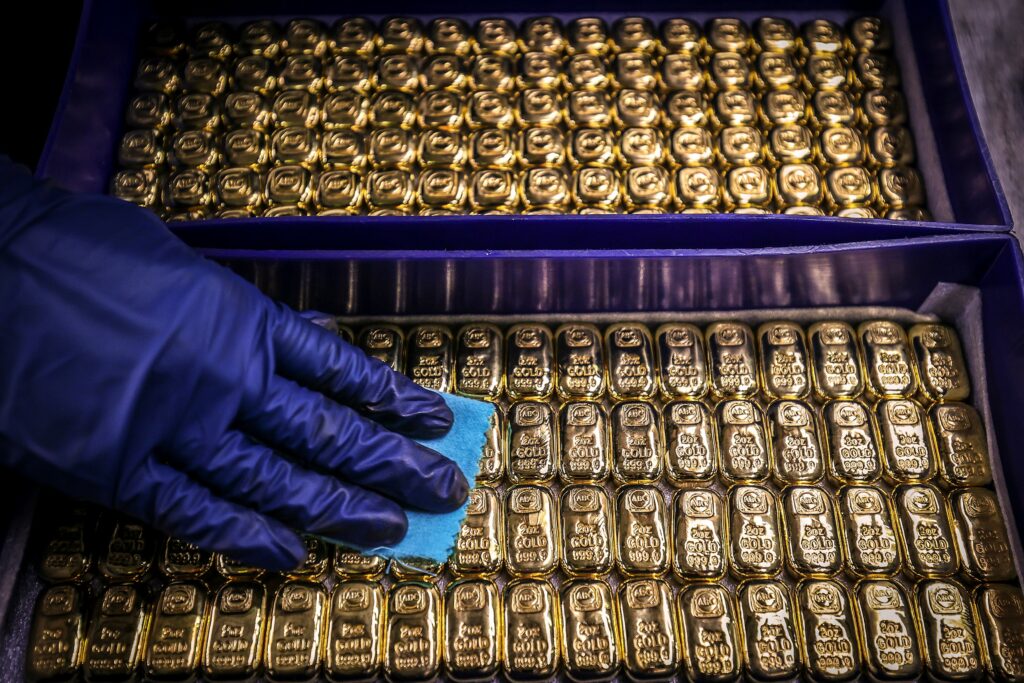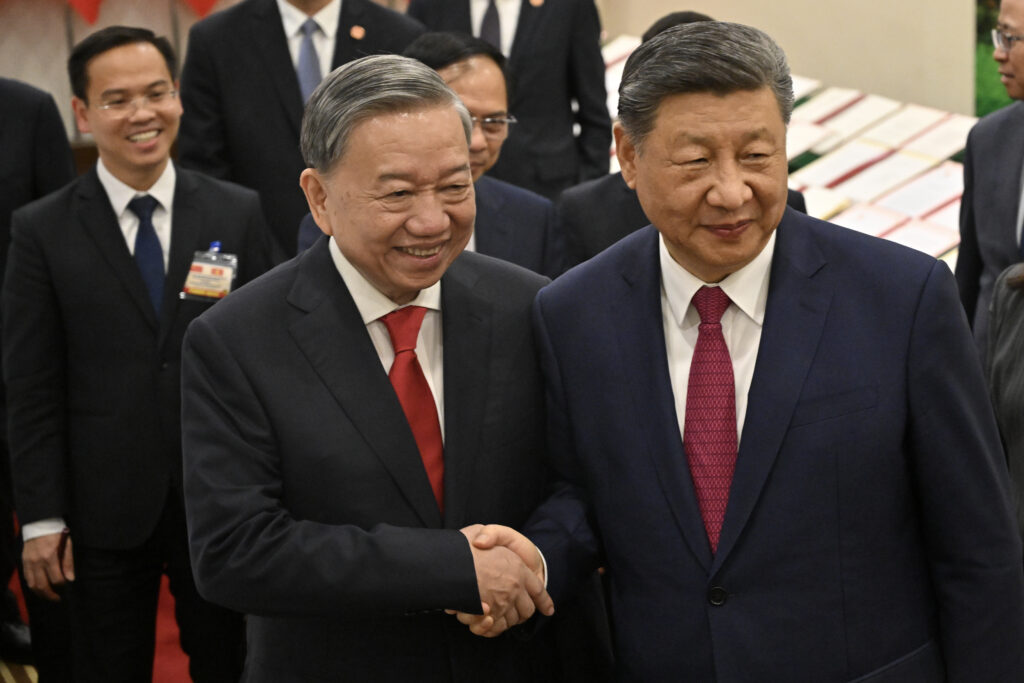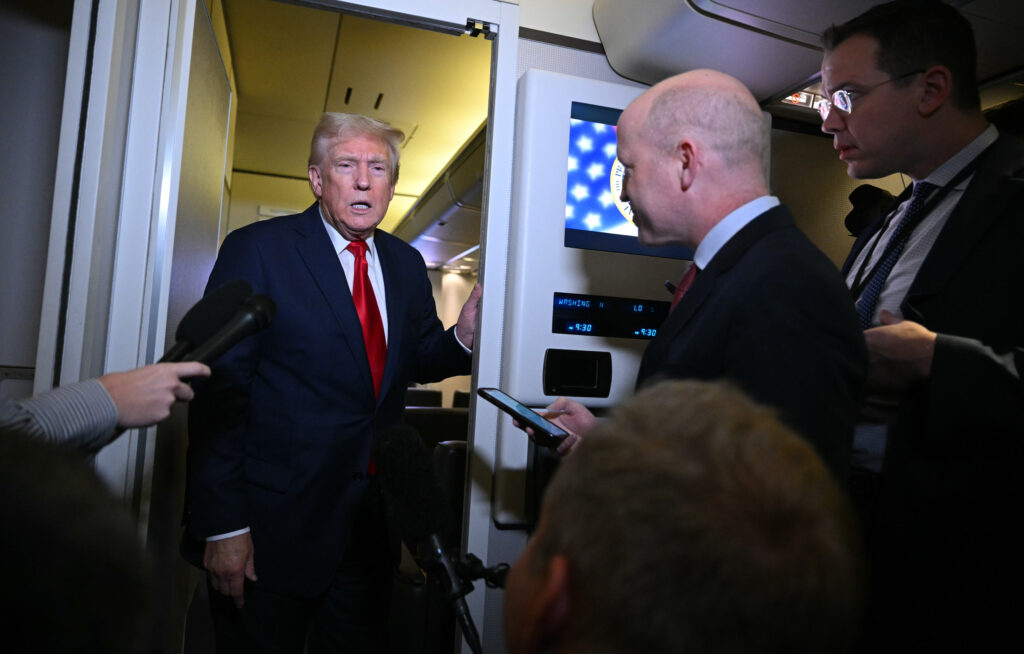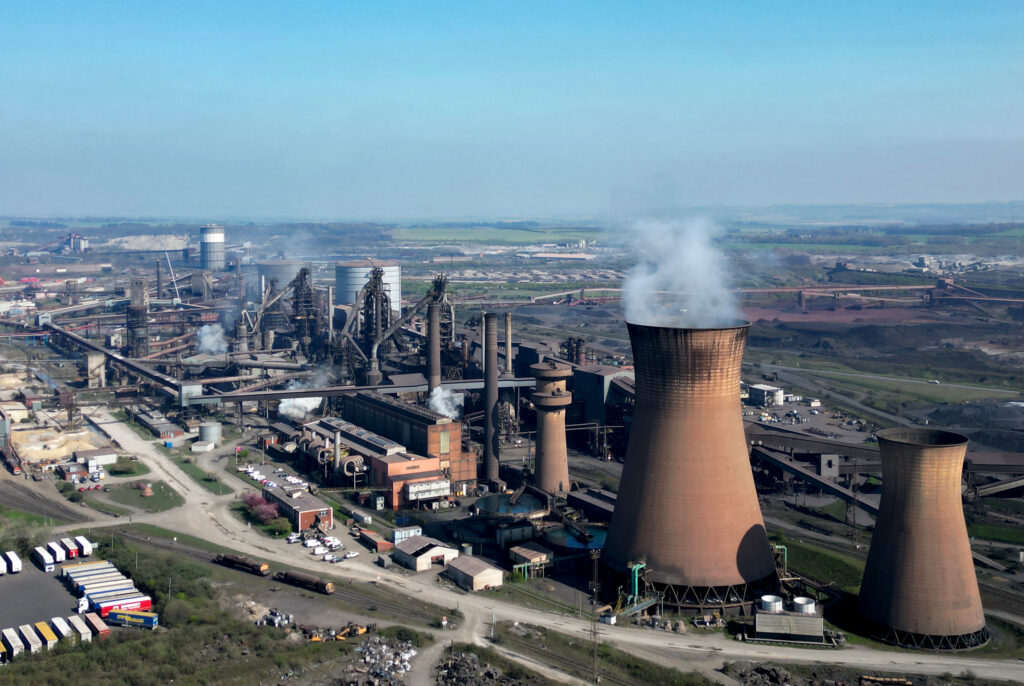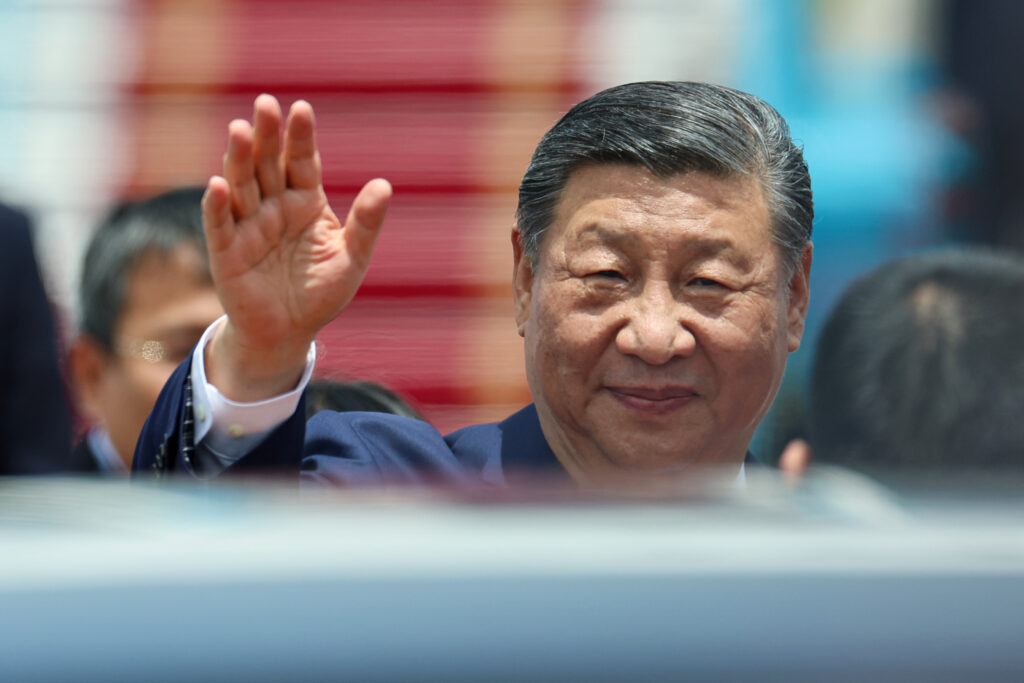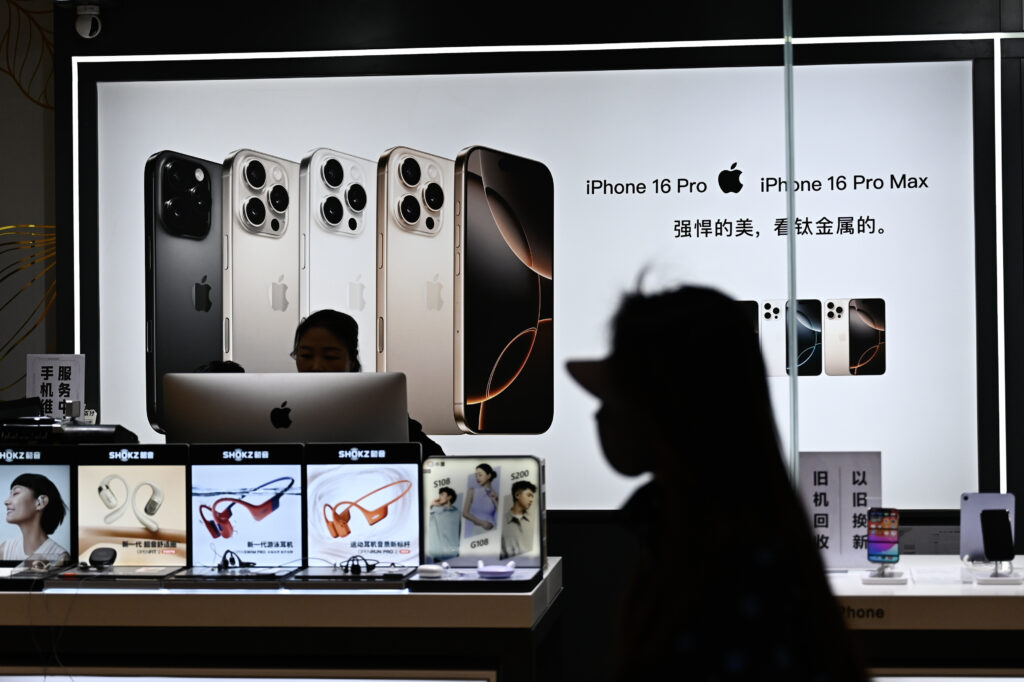Stocks rise on new tariff twist
Stock markets rose, gold hit another record high and the dollar regained some ground Monday as investors grappled with the latest twists and turns in US President Donald Trump’s trade war.Wall Street opened higher, following sharp rises in Asia and Europe, after Trump appeared to dial down his trade war as smartphones, laptops, semiconductors and other electronics — all key Chinese-made products — were given a reprieve from US tariffs on Friday.”Washington’s partial retreat from its hard-line tariff regime — specifically the temporary exemption of a raft of tech goods from punitive import levies — has momentarily eased fears of an all-out trade war,” said Fawad Razaqzada, analyst at City Index and Forex.com.But suggestions by Trump over the weekend that the exemptions would be temporary added to market uncertainty, following volatility on trading floors last week over the US leader’s erratic trade agenda.Trump said Sunday that the exemptions had been misconstrued and that no country would get “off the hook” in his trade war — especially China.As his team pursued fresh tariffs against many items on the list, including on semiconductors “over the next week”, Trump said electronics were only moved to a different tariff “bucket”.”The comment has only added to confusion and reinforced the idea that the exemptions are not permanent, keeping uncertainty elevated as the new week begins,” said David Morrison, analyst at financial services platform Trade Nation.”The US dollar remained under pressure, with ongoing trade tensions denting its appeal,” Morrison said.The dollar, however, pared back some losses against the euro and other major currencies. US Treasuries also recovered somewhat following a selloff last week that called into question the reliability of US government bonds as a haven investment.There has been speculation that China contributed to the turmoil in the US bond market by selling Treasury holdings.Gold, a go-to asset of safety in times of turmoil, hit a new peak of $3,245.75 an ounce Monday before paring back gains.”Unless a broader (US-China) trade accord is struck soon, the stalemate could continue to hold back risk appetite,” Razaqzada said.”While this softening of tone (on tariffs) may appear constructive on the surface, it doesn’t meaningfully shift the dial unless accompanied by substantive progress in US-China trade relations,” he said.- Key figures around 1340 GMT -New York – Dow: UP 1.0 percent at 40,627.10 pointsNew York – S&P 500: UP 1.4 percent at 5,438.56New York – Nasdaq: UP 1.7 percent at 17,015.38 London – FTSE 100: UP 1.8 percent at 8,110.28Paris – CAC 40: UP 2.4 percent at 7,273.35Frankfurt – DAX: UP 2.7 percent at 20,921.58Tokyo – Nikkei 225: UP 1.2 percent at 33,982.36 (close)Hong Kong – Hang Seng Index: UP 2.4 percent at 21,417.40 (close)Shanghai – Composite: UP 0.8 percent at 3,262.81 (close)Euro/dollar: DOWN at $1.1324 from $1.1359 on FridayDollar/yen: UP at 143.70 yen from 143.49 yen Pound/dollar: UP at $1.3157 from $1.3088Euro/pound: DOWN at 86.14 pence from 86.80 penceBrent North Sea Crude: UP 0.7 percent at $65.20 per barrelWest Texas Intermediate: UP 0.6 percent at $61.87 per barrel
